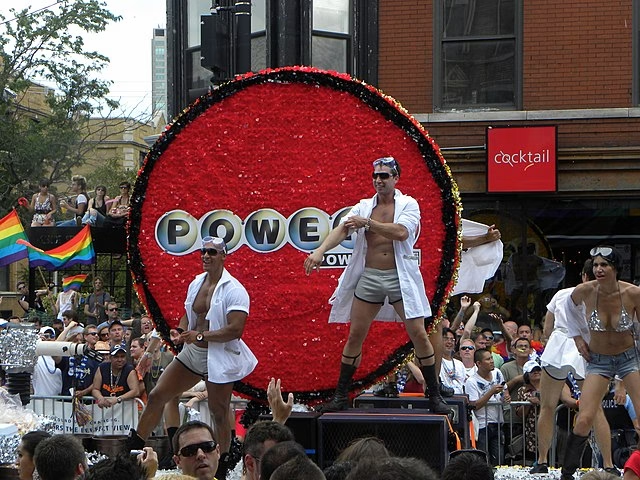The String of Numbers That Changed Everything: A Powerball Player’s $340 Million Battle
When John Cheeks bought a Powerball ticket, he never imagined his life would take a dramatic turn. But when he saw his numbers posted on the Powerball website as the winning combination for a $340 million jackpot, his world turned upside down. However, what should have been a dream come true became a legal nightmare.
The Jackpot That Wasn’t
The numbers on Cheeks’ ticket perfectly matched those posted on the Powerball website after the January 2023 drawing. For a brief moment, it seemed he had defied the odds of 1 in 292 million to win the grand prize. But celebrations were short-lived. Powerball officials later declared that the numbers displayed on the site were part of a “test” and not the official winning numbers.
This revelation led to an intense legal battle, with Cheeks filing a lawsuit against the Powerball organizers and associated entities, including Taoti Enterprises, a Washington-based contractor responsible for marketing the lottery. Cheeks claims breach of contract, gross negligence, and emotional distress, seeking not just the $340 million but also damages and interest.
The Defense: A Mistake, Not a Jackpot
Powerball administrators argue that Cheeks’ claim is based on an obvious error. According to their defense, the numbers he saw on the website were test figures mistakenly posted before the actual drawing occurred. Taoti Enterprises explained that a staff member had inadvertently uploaded the test numbers, which remained on the website alongside the real numbers for three days before being corrected.
Adding to their argument, the Powerball website included a disclaimer that it was not the “final authority” for winning numbers and that tickets had to be validated by the D.C. Lottery and independent auditors. Officials contend these disclaimers, along with the absence of a red Powerball number in the test figures, should have made it clear that the numbers were invalid.
“These red flags would cause any reasonable person to know that they were not the valid winning numbers,” the contractor stated in a court motion.
The Plaintiff’s Perspective
Cheeks sees the situation very differently. He insists that as a paying participant in the lottery, he had every right to trust the information published on the official website. “They were happy to take his money to play their game, and he had a winning ticket according to their multiple publications,” said Richard Evans, Cheeks’ attorney.
Evans also criticized the lack of public transparency regarding the mistake. He pointed to a precedent set in Iowa, where incorrect numbers were briefly posted online, and smaller prizes were paid out to winners before the error was corrected. Evans argues that Powerball officials have an obligation to honor their mistakes, regardless of the scale.
“This is not merely about numbers on a website,” Evans emphasized. “It’s about the reliability of institutions that promise life-changing opportunities while heavily profiting in the process.”
A Personal Journey
For Cheeks, a public rights advocate, this case goes beyond money. It’s a matter of principle and accountability. He recalls the moment he discovered his “winning” numbers with a mix of excitement and disbelief. “I got a little excited, but I didn’t shout, I didn’t scream,” Cheeks told NBC. “I just politely called a friend.”
His initial joy quickly turned into frustration as he attempted to redeem his prize, only to be informed of the error. Despite the setback, Cheeks remains determined to fight for what he believes is rightfully his.
Broader Implications
The case raises questions about the transparency and accountability of lottery organizations. With millions of people relying on these systems for a chance at life-changing wealth, even small mistakes can have significant consequences. Studies have shown that lottery players are often from low-income backgrounds, making the need for fairness and integrity even more critical.
Cheeks’ lawsuit also highlights the challenges of managing large-scale operations like Powerball, which spans 45 states, the District of Columbia, Puerto Rico, and the U.S. Virgin Islands. Mistakes, while inevitable, can erode public trust if not handled appropriately.
The Road Ahead
The case is set to be heard in a D.C. civil court, and its outcome could set a precedent for how lottery errors are handled in the future. While Cheeks’ chances of securing the $340 million remain uncertain, his fight has already sparked widespread debate about consumer rights and corporate accountability.
Meanwhile, Cheeks continues to advocate for fairness, using his platform to inspire others to stand up against perceived injustices. As he awaits his day in court, one thing is clear: this is more than just a fight for money—it’s a battle for trust, transparency, and the principles that underpin the lottery industry.
